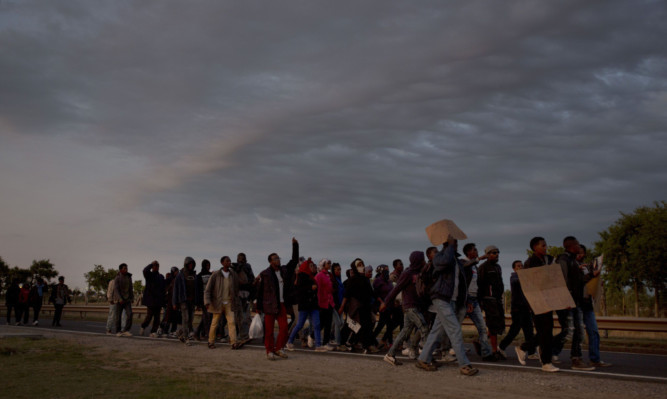Identity cards are now “essential” in the wake of the Calais migrant crisis, campaigners have claimed.
Migration Watch UK said “radical action” was needed and also called for a full search of all trucks as they arrive at Dover.
The think tank, which campaigns for tighter immigration restrictions, said the crisis in Calais is the culmination of “long-standing and growing weaknesses in the immigration system”.
The report said: “In the longer-term we must return to the introduction of ID cards.
“The French are right to point out that the absence of ID cards in the UK makes it far too easy for migrants to stay on illegally and find work in Britain.”
French officials have repeatedly claimed the absence of ID cards in the UK and access to the unofficial jobs market are major factors in drawing migrants to Calais.
In March, the town’s mayor Natacha Bouchart said in an interview: “They want to go to England because they can expect better conditions on arrival there than anywhere else in Europe or even internationally.
“There are no ID cards. They can easily find work outside the formal economy, which is not really controlled.”
ID cards were first mooted by the Labour government in 2003. However, the project was scrapped by the coalition in 2010.
Migration Watch UK’s Lessons From Calais report also called for:
:: A full search of trucks arriving in Dover, with illegal immigrants found immediately arrested.
:: Contingency planning for military aid to be available to help conduct searches.
:: Additional detention centres to be established around Dover amid an overall expansion of the estate.
:: A “one-stop shop” to consider asylum claims and deport those whose claims fail.
:: The budget for immigration enforcement to be doubled.
Lord Green of Deddington, chairman of Migration Watch, said: “Some of those in Calais may well have a case for asylum but they should be claiming in France which is, of course, a safe country.
“The real issue is about others who believe that, once they have crossed the Channel, they will be able to work illegally and send money home with very little risk of deportation.
“More security measures in France will not be sufficient. We need to change the perception that Britain is a ‘soft touch’.
“That means arresting, detaining and, where possible, deporting those who have entered our country illegally.”
